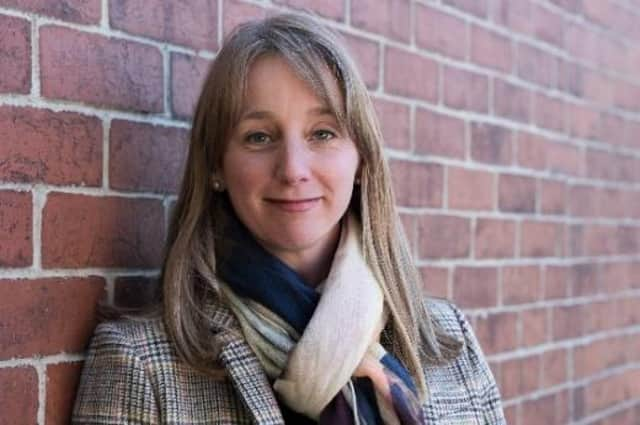Guiseley's Full Circle Funerals director on why she added new chapters on eco-funerals, digital and wellbeing to her book Funerals Your Way


Many of us have confronted the idea of death more than we usually might over the last two years. Consequently, how we feel about and deal with it has have changed, believes a former NHS surgeon who runs a therapeutic funeral service in Yorkshire.
In 2016, Dr Sarah Jones founded Full Circle Funerals, which operates in Guiseley, Halifax, Harrogate and Leeds.
Advertisement
Hide AdAdvertisement
Hide AdShe also released the self-help book Funerals Your Way, which has rasied money for numerous causes, in 2018 and it became a bestseller on Amazon.
Now, Sarah has put out a second edition with new chapters about green funerals, organising funerals in the digital age and wellbeing during grief.
While she cites how health publication The Lancet’s ‘Commission on the Value of Death’ in January reported that the pandemic has further “medicalised” dying, she also suggests that people have become more personal and selective in the way that they actually mark a loved one’s passing.
It was a tragedy for the many families who, during lockdown periods, could not be joined by relatives that would otherwise have been at funerals.
Advertisement
Hide AdAdvertisement
Hide AdDr Jones says: “It felt like a sort of societal and individual level people were quite shocked when their opportunity to engage in funeral ritual was heavily restricted. Even if people maybe hadn’t given it too much thought before, the really strong sense was that actually having it removed was a problem for people,” she says.
“Anecdotally, within our team, we have the sense that people actually have a bit of a renewed appreciation for funeral rituals, and being able to come together and connect with other people around and in a funeral.”
But much of our lives are now spent online, which means that those who die inevitably leave a “digital legacy” too, and people are paying attention to that when organising funerals.
Dr Jones says: “In the pandemic, things really moved forward a lot in terms of people thinking about visual tributes at funerals and livestreaming and recording funerals and sharing them that way. Also, digital technologies have moved on so there are now things like QR codes that people sometimes want to use on orders of service to take people to different images.”
Advertisement
Hide AdAdvertisement
Hide AdMeanwhile, concern about the environment and climate change are also part of the process for mourners.
“For some people, it’s their primary objective, and particularly if the person who’s died was lived their life by the principles of trying to have a positive impact on the planet.
“People come into making arrangements with a lot of things on their mind, a lot of priorities, a lot of worries often, but I think for more and more people, it is a factor,” she says.
The latest edition of her book – the proceeds of which now go to Healthy Minds Calderdale after raising funds for the Leeds-based Swan Song Project, which helps to write songs if they have a life limiting condition, in 2021 – also has more information for left behind on wellbeing.
Advertisement
Hide AdAdvertisement
Hide AdStressing she is not a wellbeing expert, Dr Jones says: “It’s quite a gentle chapter, but it just tries to encourage people just to think about some things like exercise and sleep and nutrition and hydration and music and connecting with people.”
Previously, mother-of-two Dr Jones thought that the British did not like to talk about death and still considered it somewhat taboo, but says: “I think my thoughts have probably evolved a little bit since. The book’s a really interesting example because, I mean, someone’s buying it, so someone wants to know. I wonder, actually, if there’s an awful lot of conversations happening about death, dying, bereavement and grief, but they’re just happening in places where people are comfortable.”
The second edition, released by Fisher King Publishing, is out now.